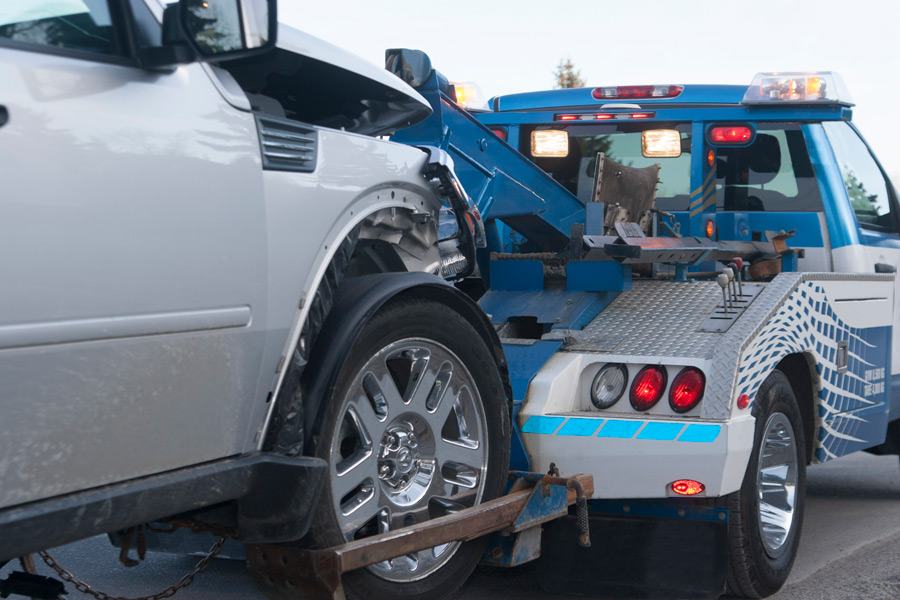June 25th, 2018
When Your Vehicle Is Towed After An Accident in Maryland
Posted in: Personal Injury Tagged: Jamie Alvarado-Taylor
Author: Jamie Alvarado-Taylor

Among the many factors to consider when you are involved in an automobile collision is what happens to your vehicle in the event that it is disabled and needs to be towed. What are your rights and responsibilities if your car is towed?
If your vehicle is disabled and you have the option to have it towed to your home, this will be the lowest cost option as you may just pay towing fees. However, if the vehicle is impounded by the police to a tow lot — or if towing the vehicle to your home is not an option and you need to have it towed to a private lot — then you will incur both towing plus storage fees. The storage fees will increase each day that the vehicle is parked at the lot. You should get the vehicle out of the lot as soon as possible.
You will need to pay the lot’s fees first. Either you can pay for the fees out of pocket, use your collision coverage through your insurance carrier or, if you are not the person at fault for the collision, you can ask the insurance of the at-fault driver to get the vehicle out of the lot.
Pay the towing and storage fees out of pocket: This option is often taken when you are at fault for the accident and do not have collision coverage. If you choose this option and are not at fault or do have collision coverage make sure to keep your receipt in case you are eligible to be reimbursed by either your own insurance carrier or the at-fault insurance carrier.
Use your own collision coverage: If you have collision coverage on your insurance policy, you can use that coverage to get the vehicle, regardless of whether you were at fault for the accident. Call your insurance carrier to make the claim, and let them know where the vehicle is located. They will tell you what the next steps are to proceed.
Request the at-fault person’s insurance pay: This option requires that you wait for the at-fault insurance carrier to get the vehicle out of the tow lot. This is only available in cases where you were not at fault for the accident and the insurance carrier for the at fault party has already accepted responsibility for the accident. If there is a dispute over who is at fault, then the other person’s insurance will not voluntarily pay.
It is important to know that, in Maryland, you have a responsibility to minimize and limit your costs, even when you are not at fault for an accident. This is called your “duty to mitigate” your damages. That means that you cannot keep your vehicle in a tow lot for an extended period and expect the insurance carrier to pay for the full amount of the storage bill. Typically, an insurance carrier will not pay for storage for more than one week. After that, you may be responsible for the additional expenses.
Before going to pick up your vehicle, you should call the lot to make sure you know what proof of identification they will require. Typically, you will need to bring the registration, or other proof of ownership, and a government issued identification. If you need to have someone else get the car for you, who is not a co-owner of the vehicle, the lot may require a notarized letter before releasing the vehicle.
More Information is available for vehicles towed to Montgomery County, MD lot or vehicles towed to Prince George’s County MD lot on the county websites.
[DR1]Link this text to https://www.montgomerycountymd.gov/POL/Chief/bureaus/management/VRS.html







